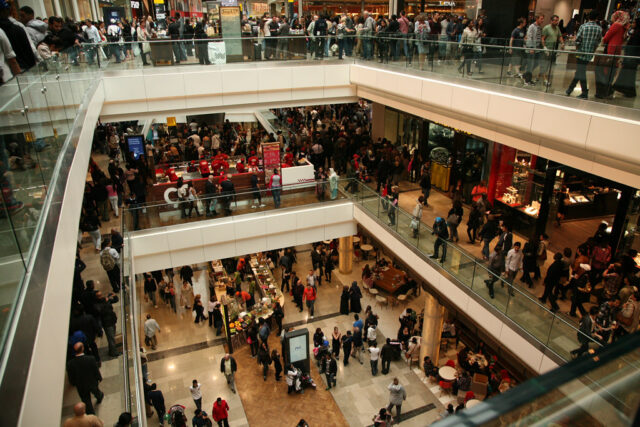Among the many changes brought about by the ongoing pandemic is a trend away from physical stores and toward online ones. This is a change that’s been brought about by legal force – when out-of-town shopping centres and town centres were placed onto enforced lockdown, we have no choice but to turn to online alternatives in the interim.
The biggest beneficiaries of this have been the businesses who already have the infrastructure in place, and could scale quickly to meet the surging online demand. Those that were slower to introduce an online component, or which didn’t introduce that component at all, were more likely to struggle.
How much shopping did we do?
One of the biggest drivers for online shopping during the lockdown was boring. A survey by price-comparison site Idealo revealed that nearly half of us (48%) made ourselves happier by making an online purchase. Moreover, just under a third (31%) bought something online every single week, and even more than that (39%) admitted that they’d bought something that they otherwise wouldn’t have.
Of course, this is probably not surprising – an unprecedented lockdown will invariably influence buying behaviour. Many opted to bring in products that would help to keep them entertained while stuck indoors. Electronics, musical instruments and gaming devices all enjoyed sustained bounces. Other sectors, like fashion and motoring, did worse.
Among the biggest beneficiaries, of course, have been the hauliers who actually get the products from the warehouse to your front door. Parcel2Go are a company who put customers in touch with the shipping solutions best suited to their individual needs.
Their head of marketing, Larisha McGurty, said: “In the current climate, customers feel safe shopping online and it is likely that these habits, whether it is buying essentials, treating yourself or even buying a gift for a relative will continue for the foreseeable future. Even when the public start to venture back to normality with a trip out to the shops, we expect the positive online shopping experiences during this period to encourage more online purchases than before the lockdown period.”

Will the change be permanent?
According to research by Alvarez & Marsal and Retail Economics, more than seventeen million brits will make a switch to making all of their purchases online. This represents around a quarter of the country’s population, and would mean a seismic shift in the economy. This is in part due to fears over contagion: customers who perceive themselves to be at greater risk are more likely to shop online.
But many more might take a look at the time they’re saving, and the hassle they’re eliminating, and decide that online shopping makes sense even when there isn’t a virus at large. Having gone to the trouble of registering an address, they might suppose that they’ve overcome the biggest barrier to online shopping, and thus that it’s worth sticking with.
There are some products which aren’t suited to online purchasing, and thus the physical stores which sell them are likely to remain more resilient. Large items which can’t be easily assessed on a computer screen, or returned if they fail to meet the customer’s expectations, might continue to be sold in physical locations for the foreseeable future.
We’ve undergone the biggest experiment in lifestyle change in living memory – and it’s a near-certainty that at least some components of the change will remain with us.




